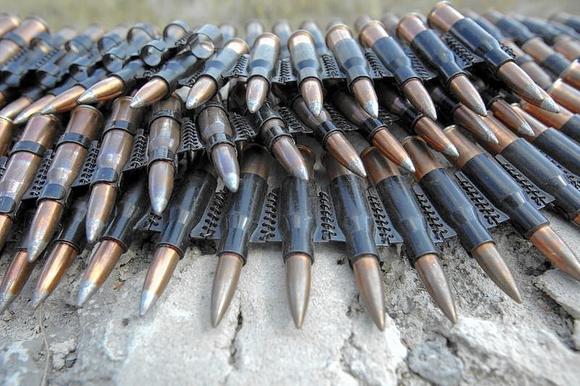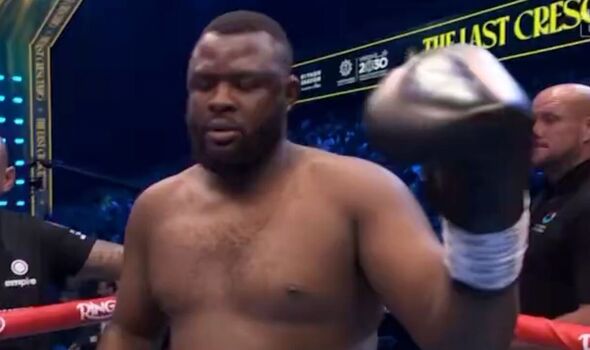Company Calls W.Va. Justice’s Failure to Disclose ‘Extremely Troubling’
December 4, 2014
Fleeing war and crumbling economy, Ukrainians flock to Europe
December 5, 2014
OAKLAND — Lidia Gonzalez and Rachel Brown will be in the stands when their favorite football teams square off Sunday, but they’re telling loved ones to leave their children at home.
Both women attended the last 49ers-Raiders game — a 2011 preseason fiasco at Candlestick Park that was marked by two nonfatal shootings, two brutal assaults and many alcohol-fueled fisticuffs.
“I saw more fights at that game than any game in my life,” said Brown, a 45-year-old Raiders fan from Vallejo.
And despite assurances from law enforcement and continued efforts by the NFL to tamp down on fan violence, both women have good reason to expect more altercations during Sunday’s game in Oakland.
The last three Raiders-49ers games in San Francisco were the most violent games of their respective seasons at Candlestick Park, even though two of them were meaningless exhibition matchups, San Francisco police statistics show. On average, there were more than three times as many arrests for battery during the three games against the Raiders than during the 28 other home games those seasons.
“Every time they meet, it’s the same thing,” said Gonzalez, a 28-year-old 49ers fan. “Fights in the bathroom; fights at the tailgate; 2011 was just the cake-topper.”
Gonzalez is not bringing her 6-year-old son to Sunday’s game, and she has already told the 49ers fans she’ll be sitting with not to take the bait if Raiders fans start trash talking.
“I made it clear,” she said. “I know we are a prideful people, but as long as it’s just words, let it go.”
Experts differ on what is spurring fan violence at sports events and whether it is really on the rise or if fights are just getting more attention now because they are recorded on cellphones and posted online.
No data
Leagues don’t provide data on fan fights, said Jerry M. Lewis, a sociologist professor at Kent State University and the author of Sports Fan Violence in North America.
The NFL, which locally outpaces other sports leagues in fan ejections, issued a code of conduct policy for fans six years ago in response to concerns about violence in the stands. And in 2012, the league began directing fans ejected from stadiums to take preapproved online classes on proper conduct before being allowed to return.
Teams are trying to curtail violence as well. The 49ers tightened tailgating rules, including a ban on postgame drinking in parking lots, after the game against the Raiders in 2011. Both local clubs agreed to end the annual preseason matchup.
Still, fan violence persists. In October, two 49ers fans were charged in the beating of a fellow fan in a Levi’s Stadium bathroom. Two weeks earlier, several 49ers fans were captured on camera brawling with opposing fans at an away game in Arizona.
Alameda County Sheriff Gregory Ahern said that fan violence has decreased slightly over the years at Raiders games, but his deputies who help police at O.co Coliseum are still busy.
Ejections
So far this season deputies have ejected an average of 49 people from each Raiders home game for code of conduct violations and arrested an average of 10 people often for public intoxication or fighting, he said.
Oakland police officers ejected 247 fans from the Raiders games last season, records show. By comparison, officers ejected just 52 people from Oakland A’s games last season and 13 people from Golden State Warriors games.
Football games draw more fans than other sports, which leads to more expulsions, but UC Berkeley Sociologist Harry Edwards said other forces are at work when it comes to fan violence and the NFL. He cited a growing sense of tribalism among fans donning team colors and uniforms and a decrease in families holding onto season tickets for generations as more corporations buy up increasingly expensive seats.
“Fewer fans have that sense of cultivated responsibility, solidarity and mutual respect that comes from years of families sitting next to each other or in the same stadium section season in and season out,” he wrote in an email.
Added security
Ahern refused to go into specifics about the number of deputies he’ll have at Sunday’s football game, but he said that there will be added security with more plainclothes and uniformed officers patrolling the stadium and parking lots.
“We want to be highly visible so fans can enjoy the game and avoid anything serious,” he said.
The so-called Battle of the Bay has been bringing out the worst in some fans for decades, but it reached a new low in 2011, fans said. Police tallied 42 calls about fan disputes and four battery arrests — both highs for the entire season. More than 70 fans were ejected.
Gonzalez recalled walking across the parking lot before the game and seeing fans jawing at each other during tailgates and a fight break out between two women.
“It’s weird to see how it becomes this war zone,” she said. “The air is so tense. Anybody can say something or do something that will just escalate.”
Several fans attributed the tension to the fact that the teams play less frequently than the Bay Area’s baseball teams and that gangs affiliate more with football. Preseason games are worse, they said, because tickets are cheaper and more likely to be resold online, which draws a younger, more violent crowd.
For all the distress about fan violence in the U.S., Lewis said it pales in comparison to Europe where fights at soccer stadiums instigated by organized hooligan gangs have led to multiple deaths during games.
Lewis says it’s difficult to say why America’s sporting culture is relatively less violent than Europe’s, but one reason could be that Europe has only one major sport — soccer — while the U.S. has several.
“We are probably the most pluralistic sports country in the world, so it splits up the fandom,” he said.
For Spencer Wolf, a 49ers fan from Hayward who will be attending Sunday’s game with Gonzalez and more than a dozen other 49ers fans, the threat of violence is disheartening, but something he’s grown accustomed to.
He said he won’t go to the bathroom by himself Sunday because he’ll be wearing a 49ers jersey. And he said he’s only wearing the jersey because he’s going with lots of fellow fans.
“Would I wear a jersey if I was going myself?” he said. “Hell no. I’m a die-hard fan, but I’m not stupid.”
Contact Matthew Artz at 510-208-6435.
O.co Security Line
To report any conduct concerns on GameDay, text your message and location to 510-500-8787




